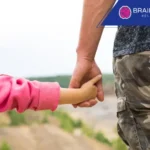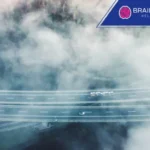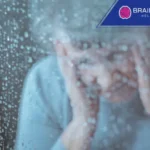As awareness grows about the dangers of head trauma in sports, a growing number of retired NFL players and UFC fighters are turning to ibogaine brain injury treatment, a psychedelic compound derived from a West African shrub.
Although ibogaine is classified as a Schedule I substance in the U.S. (meaning no federally recognized medical use), some athletes describe the therapy as “life-saving.” Former NFL lineman Robert Gallery said that after trying ibogaine in Mexico, his anxiety and depression eased dramatically:
“I could go for a run and be thankful that I’m alive, rather than thinking I should step in front of a truck.”
Stories of Relief and Recovery
- Robert Gallery (NFL): Credits ibogaine with restoring his mental health and family relationships, after years of suspected CTE-related symptoms.
- Tait Fletcher (MMA fighter & stuntman): Reported relief from severe concussions and suicidal ideation after ibogaine therapy in 2023.
- Keith Jardine (UFC): Inspired by fellow fighters, he sought treatment abroad.
- Ales Hemsky (NHL): Said ibogaine freed him from alcohol dependency post-retirement.
- Brett Favre (NFL Hall of Fame QB): Reported temporary improvement of Parkinson’s symptoms after therapy in Mexico.
In a Stanford University observational study of 30 veterans, ibogaine treatment led to significant symptom reductions:
- PTSD: 88%
- Depression: 87%
- Anxiety: 81%
Participants also showed cognitive improvements in memory, concentration, and information processing.
Legal and Medical Context
Despite promising outcomes, ibogaine remains illegal in the U.S. under federal law:
- Controlled Substances Act: Ibogaine is Schedule I, along with LSD and psilocybin (21 U.S.C. §812).
- DEA Oversight: Moving ibogaine into a lower category would require FDA clinical trials proving safety and efficacy.
- State Exceptions: Some states, like Oregon, with psilocybin, have begun creating frameworks for supervised psychedelic therapies. California legislators, like Senator Scott Wiener, are also pushing for accelerated research into ibogaine and other psychedelics.
Athletes who pursue ibogaine abroad face legal uncertainty. If harm occurs, it can complicate liability claims, since treatments are unregulated and outside U.S. jurisdiction. Medical experts also caution that ibogaine can cause cardiac risks, including arrhythmias, requiring strict monitoring.
Compensation Rights for Athletes and Accident Victims
For those suffering from traumatic brain injuries (TBIs) due to sports or accidents, compensation may be available through:
- Workers’ Compensation: For professional athletes injured during the course of their careers.
- Personal Injury Claims (Civil Code §1714): Victims can pursue damages if negligence contributed to the head injury (e.g., unsafe coaching practices, faulty equipment).
- Product Liability: If helmets or safety gear failed to protect players as marketed.
- Wrongful Death Claims (CCP §377.60): Families of athletes who pass away from TBI-related complications may seek damages.
Compensation may cover medical expenses, lost income, long-term care, and pain and suffering.
Related read: Can Victims of Sports-Related TBI File a Claim in California?
How We Can Help
If you or a loved one has suffered a brain injury and is exploring treatments and therapy for brain injuries, know that you don’t have to navigate this difficult time alone. Our experienced attorneys are here to provide compassionate, expert guidance. We offer:
- Free Consultations: Learn about your rights and treatment-related risks without any upfront costs.
- No-Win, No-Fee Guarantee: You only pay if we win your case.
- Comprehensive Support: From negotiating with insurance to pursuing maximum compensation, we’re with you every step of the way.
Brain injuries change lives. If you’ve been impacted by head trauma or an undiagnosed concussion, contact the Brain Injury Help Center for a free consultation. Let us fight for your recovery and your future.









